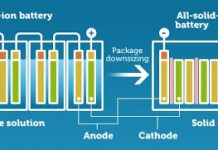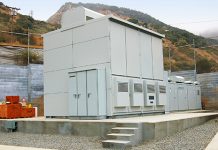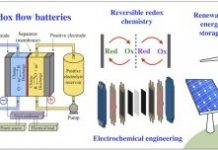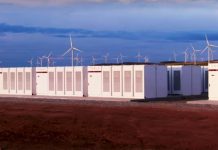Doug Young
![320px-A123_Systems_cell_family_high_rez[1].jpg](http://www.altenergystocks.com/wp-content/uploads/2017/08/320px_A123_Systems_cell_family_high_rez_1_.jpg) |
| A123 Systems battery cell products (Source: A123) |
After a stormy 2012 that saw growing trade friction between China and the US, I’m happy to see that 2013 is getting off to a better start with Washington’s approval of a potentially sensitive sale of a bankruptcy US technology firm to a Chinese buyer. Many readers will know that I’m talking about the case of A123 Systems (AONEQ), a former high-flying US battery maker that fell on hard times as new energy industries worldwide experienced a broader downturn in demand for their products.
In this case, Chinese buyer Wanxiang Group had won an auction for most of A123’s assets in a US bankruptcy court, which should have been the final step for closure of the deal. But then some US politicians, prodded by one or more companies that lost in the bidding process, started pressuring the Obama administration to kill the deal, since it involved cutting-edge technologies used in lithium ion batteries.
In this case, I’m glad to report that the Obama administration has seen the light of reason, and the agency that reviews deals for national security concerns has just approved the sale, according to foreign media reports citing Wanxiang. (English article) The deal still requires one more government approval to close, but presumably it will receive such a green light after getting this first important approval.
I’ve been saying all along that this deal should get approved, as Wanxiang looked like it was in a good position to develop some of A123’s technologies that otherwise may have been wasted if a suitable buyer couldn’t be found. I’m also hopeful that this is a sign that cooler heads will prevail in Washington now that the US presidential election is in the past and politicians can get back to the business of governing rather than looking for opportunities to curry public favor by opposing China acquisitions on national security grounds.
Readers will recall that 2012 was a particularly bruising year for US-China trade relations, as US politicians took just about any opportunity to oppose any Chinese purchases of US companies based on national security concerns. Washington spent much of the year crafting a package of punitive tariffs against China’s embattled solar panel sector, citing Beijing’s unfair subsidies for the industry that put other global rivals at a disadvantage.
That dispute wasn’t really related to national security, but still had plenty of anti-China overtones. The anti-China rhetoric reached a crescendo in October, just a month before the election, when the US government said that Chinese telecoms equipment makers Huawei and ZTE (HKEx: 763; Shenzhen: 000063) should be blocked from selling their products in the US due to national security concerns. (previous post) Washington said that equipment from both companies presented a risk because Beijing could potentially use networks built by both Huawei and ZTE for spying.
Despite the heated rhetoric, reason did prevail to the north in Canada, where the government in December approved the sale of oil exploration giant Nexen to China’s CNOOC (HKEx: 883; NYSE: CEO) after months of foot dragging. (previous post) But the government added that it might not approve similar deals in the future, again highlighting the sensitivity of such transactions.
Yet another sensitive deal is still pending, which has a Chinese group in negotiations to buy ILFC, the biggest US aircraft leasing company, from insurance giant AIG (NYSE: AIG). It’s not clear if the Chinese buyer in that case will ultimately reach a deal to buy ILFC, which would then require US government approval. But now that the US election is behind us, I’m hopeful that the US will get back to the business of more governing and do less politicking with these cross-border acquisitions. If that happens, look for an uptick in cross-border M&A, with rhetoric from both Washington and Beijing fading as both sides get back to the business of promoting economic growth.
Bottom line: The US approval of the sale of a battery maker to a Chinese buyer could mark the beginning of a toning down in US-China trade friction in 2013.
Doug Young has lived and worked in China for 15 years, much of that as a journalist for Reuters, writing about publicly listed Chinese companies. He currently lives in Shanghai where he teaches financial journalism at a leading local university. He also writes daily on his blog, Young’s China Business Blog, commenting on the latest developments at Chinese companies listed in the US, China and Hong Kong. He is also the author of an upcoming book about the media in China, The Party Line: How The Media Dictates Public Opinion in Modern China .








